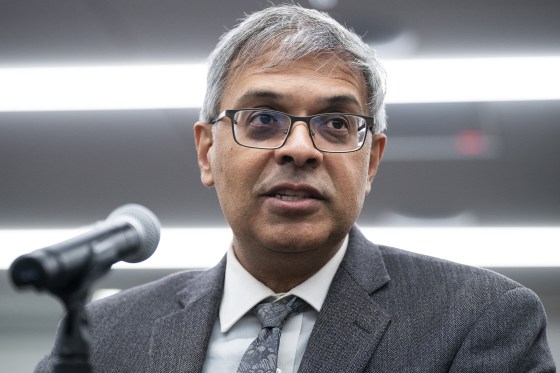
The next director of the National Institutes of Health will be Dr. Jay Bhattacharya, a Stanford University professor who has been vocal about Covid lockdowns. President-elect Donald Trump announced his intention to nominate Bhattacharya on Tuesday.
In a press release, Trump stated, “Dr. Bhattacharya will work in cooperation with Robert F. Kennedy Jr. to direct the Nation’s Medical Research, and to make important discoveries that will improve Health and save lives.”
According to Trump, he intends to appoint Kennedy as the head of the Department of Health and Human Services. Kennedy, a vociferous opponent of vaccines, has propagated contentious and disproven health theories, such as the notion that the coronavirus targeted specific racial groups and that HIV was not the only cause of AIDS.
He has long maintained that vaccines can cause autism, a notion that was supported by debunked and retracted research from decades ago.”Studies continue to show that vaccines are not associated with ASD [autism spectrum disorder],” the Centers for Disease Control and Prevention state.
Following Trump’s remarks, Bhattacharya posted on X that he was “honored and humbled” to get the nomination.
“We will reform American scientific institutions so that they are worthy of trust again and will deploy the fruits of excellent science to make America healthy again!” he stated.
On Tuesday, Trump also announced his intention to appoint Jim O. Neill as Kennedy’s deputy secretary of health and human services. During the Bush administration, O’Neill, a critic of the Food and Drug Administration, served in a number of HHS positions.
When Bhattacharya coauthored the “Great Barrington Declaration,” an open letter urging public health officials to lift Covid lockdowns, in October 2020, it garnered national notice.
He claimed that the lockdowns were “producing devastating effects on short and long-term public health” and urged a solution that would “allow those who are at minimal risk of death to live their lives normally to build up immunity to the virus through natural infection, while better protecting those who are at highest risk.” He co-authored the paper with Oxford’s Sunetra Gupta and Harvard’s Martin Kulldorff.
The plan, which was made public prior to the development of vaccines, promoted the idea of “herd immunity,” which is the state in which a significant enough portion of a population has been exposed to an infectious disease that it is unlikely to continue spreading.
At the time, a number of specialists opposed the idea. In a joint letter published in the medical journal The Lancet a few days after the Great Barrington Declaration was released, 80 scholars from a variety of disciplines, including epidemiology and public health, referred to the concept as “a dangerous fallacy.”
The World Health Organization’s director general, Tedros Adhanom Ghebreyesus, referred to the plan as unethical.
At the time, Ghebreyesus stated, “Herd immunity has never been used as a strategy for responding to an outbreak in the history of public health. It is simply unethical to allow a dangerous virus that we don’t fully understand to run free.”
Bhattacharya has publicly criticized the way the U.S. response was handled by Dr. Anthony Fauci, who chaired the National Institute of Allergy and Infectious Diseases until 2022, and the NIH’s officials during the Covid epidemic.
Note: Every piece of content is rigorously reviewed by our team of experienced writers and editors to ensure its accuracy. Our writers use credible sources and adhere to strict fact-checking protocols to verify all claims and data before publication. If an error is identified, we promptly correct it and strive for transparency in all updates, feel free to reach out to us via email. We appreciate your trust and support!
